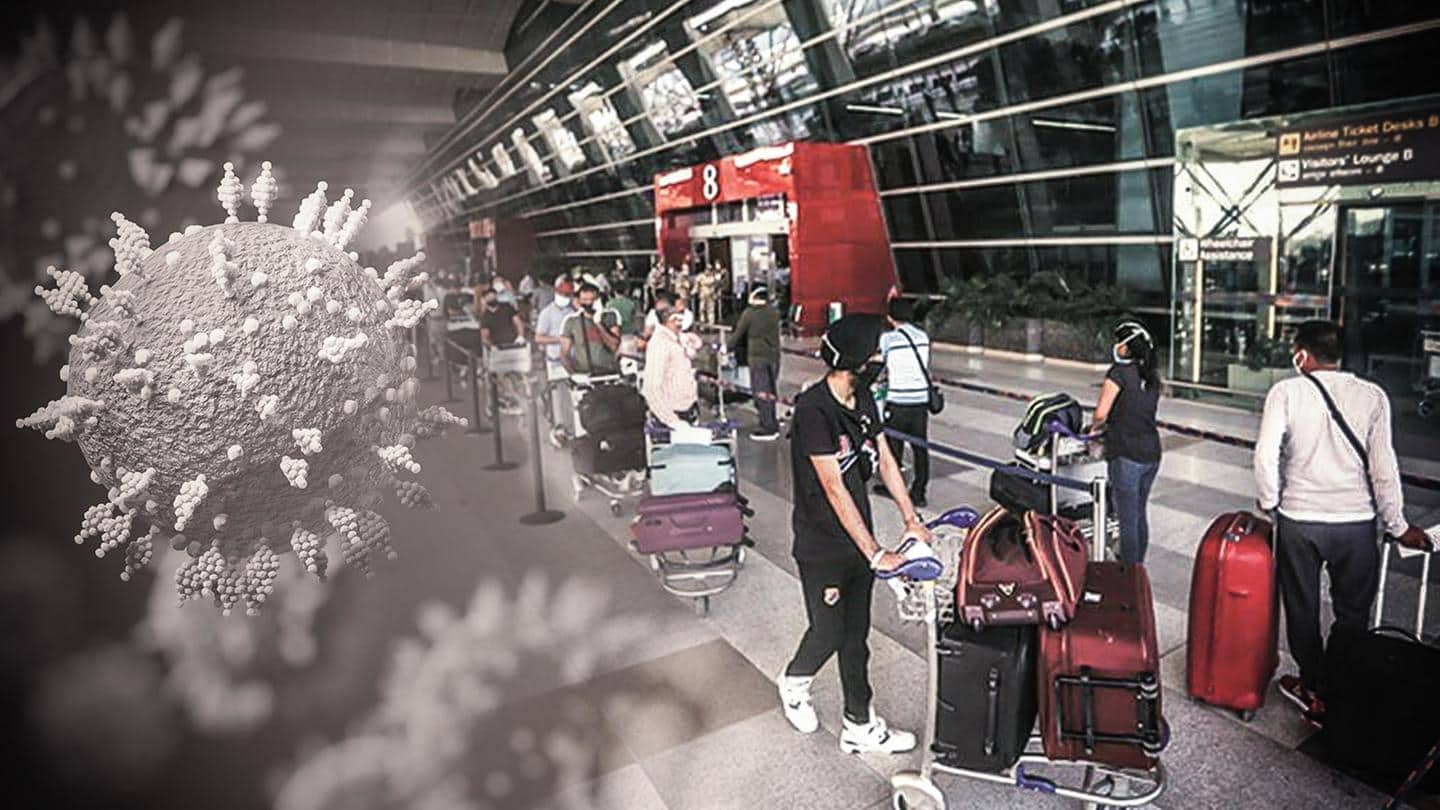
Omicron: 4-6 hours' wait at Delhi airport under new rules
What's the story
Passengers arriving from countries where the Omicron variant of COVID-19 has been detected may have to wait for up to six hours at the Delhi airport, NDTV reported.
Testing at airports across India has been made mandatory for travelers coming from dozens of at-risk nations including those where the new strain has been found.
Here are more details on this.
Context
Why does it matter?
The rules are crucial for those arriving from countries labeled at-risk by the Indian government and may affect travel plans for many.
Even though India has not reported a case of Omicron, officials and the public are concerned about it.
The strain is said to be the most heavily mutated version of the coronavirus so far.
Details
500 tests to be done in an hour
RT-PCR test reports for COVID-19 will take between four to six hours to be released, sources told NDTV.
The company handling testing for the Delhi airport can process up to 500 tests per hour and efforts are underway to ramp up the capacity.
Delhi airport authorities have made various preparations including placing chairs with social distancing norms in mind at waiting areas.
Rules
What are the rules for international passengers?
All international passengers coming to India need to fill a self-declaration form and submit a negative RT-PCR test report to enter the country.
Those coming from at-risk nations must give their samples for testing.
If found positive, they will be quarantined and their samples will be sent for genome sequencing.
Further, 5% of travelers from other countries will be randomly tested.
Information
Which countries are labeled at-risk?
Countries that have been labeled at-risk include South Africa (where Omicron is currently most prevalent), Brazil, Bangladesh, Botswana, China, Mauritius, New Zealand, Zimbabwe, Singapore, Hong Kong, Israel, and all European nations.
Developments
South Africa returnees test positive in India
Several people who returned from South Africa have tested positive for COVID-19 in Chandigarh and Karnataka and are currently under quarantine.
Earlier in the day, Union Health Minister Mansukh Mandaviya said there are no reported cases of Omicron in the country as yet.
Meanwhile, the central government has told states to enhance testing and contact tracing measures.
Strain
What do we know about Omicron?
Omicron, whose scientific name is B.1.1.529, has some 50 mutations including more than 30 in the key spike protein alone.
However, symptoms displayed by patients infected with Omicron are "mild" and can be treated at home, a top South African doctor said.
Studies to determine the efficacy of COVID-19 testing, vaccines, and treatment against the new strain are ongoing.